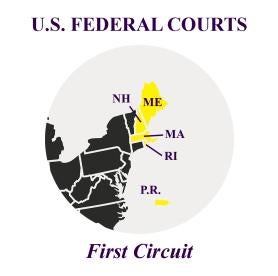In re: Celexa and Lexapro Sales Practices Litig., 915 F.3d 1 (1st Cir. 2019)
First Circuit confirms that a class action does not toll statute of limitations for a subsequent class action.
This case involved consolidated prescription drug marketing cases. Plaintiffs asserted RICO and state-law claims, alleging that defendants improperly promoted antidepressant drugs for uses the FDA had not approved. One of the plaintiffs sought certification of two classes of third party-payors that had paid for or reimbursed prescriptions for unapproved uses. The district court denied class certification for several reasons, including because the class action was time barred.
On appeal, plaintiffs convinced the First Circuit that their individual claims were not time barred because they had been tolled based on an earlier class action. But tolling could not save the class allegations. Although the Supreme Court has held that filing a putative class action tolls the running of the statute for all purported members, the Court also clarified in China Agritech that this rule has limits: a putative class member may join an existing suit or file an individual action upon denial of class certification, but may not commence a class action anew beyond the time allowed by the untolled statute of limitations. See China Agritech, Inc. v. Resh, 138 S. Ct. 1800 (2018).
In In re: Celexa and Lexapro, plaintiffs argued for a narrow interpretation of China Agritech, asserting that the rule should not apply because there had not been a substantive decision on certification in the earlier class action. The First Circuit rejected this argument: “the Court [in China Agritech] effectively ruled that the tolling effect of a motion to certify a class applies only to individual claims, no matter how the motion is ultimately resolved. To hold otherwise would be to allow a chain of withdrawn class-action suits to extend the limitations period forever.” 915 F.3d at 17.
Gammella v. P.F. Chang’s China Bistro, Inc., 482 Mass. 1, 120 N.E.3d 690 (2019)
Massachusetts SJC clarifies class certification standard for wage and hour claims and confirms that an unaccepted Rule 68 offer of judgment does not moot a class action.
In this case, the Massachusetts Supreme Judicial Court (SJC) held that the proper standard for class certification for a Wage Act claim was Rule 23, and that this certification standard was not expanded by a provision in the Wage Act that allows an employee to seek relief on his or her own behalf as well as for others “similarly situated.” Instead, the SJC reasoned that the “similarly situated” language merely served to authorize class actions under Rule 23. See Gammella, 482 Mass. at 9-12.
The SJC also confirmed that an unaccepted offer of judgment by the defendant to the putative class representative and sole named plaintiff did not render the matter moot. Id. at 19. This ruling should be compared with Demmler v. ACH Food Cos., where a defendant discontinued the labeling a plaintiff claimed was misleading before suit was filed and sent a check providing the plaintiff with full relief (with no conditions), which rendered the plaintiff’s claims moot. No. 15-13556-LTS, 2016 WL 4703875, at *4–5 (D. Mass. June 9, 2016); see also Kaplan v. Fulton Street Brewery, LLC, No. 17-10227-JGD, 2018 WL 2187369 (D. Mass. May 11, 2018) (same).
Part of the Fall 2019 Class Action Litigation Newsletter available here.




 i
i

